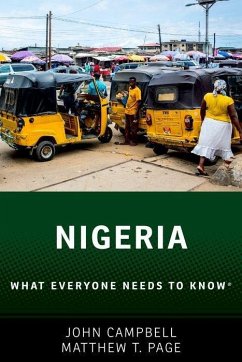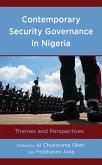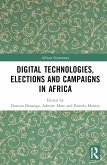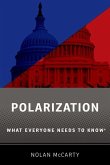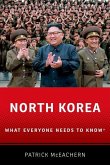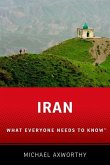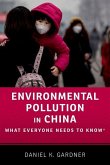John Campbell (Ralph Bunche Senior Fellow for Africa Policy Studies, Matthew T. Page (Fellow, Fellow, Centre for Democracy and Developme
Nigeria
What Everyone Needs to Know
19,99 €
inkl. MwSt.
Versandfertig in 1-2 Wochen

10 °P sammeln
John Campbell (Ralph Bunche Senior Fellow for Africa Policy Studies, Matthew T. Page (Fellow, Fellow, Centre for Democracy and Developme
Nigeria
What Everyone Needs to Know
- Broschiertes Buch
- Merkliste
- Auf die Merkliste
- Bewerten Bewerten
- Teilen
- Produkt teilen
- Produkterinnerung
- Produkterinnerung
In this overview of Africa's most populous country, Ambassador John Campbell and Matthew T. Page assess the socioeconomic, political, and security challenges that Nigeria is facing, as well as the country's future potential.
Andere Kunden interessierten sich auch für
![Contemporary Security Governance in Nigeria Contemporary Security Governance in Nigeria]() Contemporary Security Governance in Nigeria137,99 €
Contemporary Security Governance in Nigeria137,99 €![Digital Technologies, Elections and Campaigns in Africa Digital Technologies, Elections and Campaigns in Africa]() Digital Technologies, Elections and Campaigns in Africa152,99 €
Digital Technologies, Elections and Campaigns in Africa152,99 €![Polarization Polarization]() Nolan McCarty (Susan Dod Brown Professor of Politics and Public AffPolarization18,99 €
Nolan McCarty (Susan Dod Brown Professor of Politics and Public AffPolarization18,99 €![North Korea North Korea]() Patrick McEachern (Council on Foreign Relations International AffaiNorth Korea18,99 €
Patrick McEachern (Council on Foreign Relations International AffaiNorth Korea18,99 €![Vaccines Vaccines]() Kristen A. Feemster (Medical Director and Assistant Professor of PeVaccines19,99 €
Kristen A. Feemster (Medical Director and Assistant Professor of PeVaccines19,99 €![Iran Iran]() Michael Axworthy (Senior Lecturer and Director of Center for PersiaIran19,99 €
Michael Axworthy (Senior Lecturer and Director of Center for PersiaIran19,99 €![Environmental Pollution in China Environmental Pollution in China]() Daniel Gardner (Smith College Professor of History)Environmental Pollution in China14,99 €
Daniel Gardner (Smith College Professor of History)Environmental Pollution in China14,99 €-
-
-
In this overview of Africa's most populous country, Ambassador John Campbell and Matthew T. Page assess the socioeconomic, political, and security challenges that Nigeria is facing, as well as the country's future potential.
Hinweis: Dieser Artikel kann nur an eine deutsche Lieferadresse ausgeliefert werden.
Hinweis: Dieser Artikel kann nur an eine deutsche Lieferadresse ausgeliefert werden.
Produktdetails
- Produktdetails
- What Everyone Needs to Know
- Verlag: Oxford University Press Inc
- Seitenzahl: 234
- Erscheinungstermin: 2. Juli 2018
- Englisch
- Abmessung: 210mm x 140mm x 15mm
- Gewicht: 306g
- ISBN-13: 9780190657987
- ISBN-10: 0190657987
- Artikelnr.: 49776120
- Herstellerkennzeichnung
- Libri GmbH
- Europaallee 1
- 36244 Bad Hersfeld
- gpsr@libri.de
- What Everyone Needs to Know
- Verlag: Oxford University Press Inc
- Seitenzahl: 234
- Erscheinungstermin: 2. Juli 2018
- Englisch
- Abmessung: 210mm x 140mm x 15mm
- Gewicht: 306g
- ISBN-13: 9780190657987
- ISBN-10: 0190657987
- Artikelnr.: 49776120
- Herstellerkennzeichnung
- Libri GmbH
- Europaallee 1
- 36244 Bad Hersfeld
- gpsr@libri.de
John Campbell is Ralph Bunche Senior Fellow for Africa Policy Studies at the Council on Foreign Relations. He is a former U.S. Ambassador to Nigeria, and author of Morning in South Africa and Nigeria: Dancing on the Brink. Matthew T. Page is a fellow at the Centre for Democracy and Development in Abuja and an advisor with Transparency International's London-based Defense and Security Program. He is a former International Affairs Fellow at the Council on Foreign Relations and previously served the U.S. intelligence community's top expert on Nigeria.
* Introduction
* 1. Why this book?
* 2. What is a Nigerian?
* 3. What challenges does Nigeria face?
* 4. What is Nigeria's promise?
* Historical Background
* 5. Before it was a European colony, what did Nigeria look like?
* 6. What was Nigeria's colonial experience and how did it win
independence?
* 7. What caused the Nigerian Civil War and why is it still important?
* 8. What lessons can we learn from the fall of the Second Republic?
* 9. Why did military rule Nigeria for so long and what was its legacy?
* 10. Who are Nigeria's most important historical figures?
* The Economics of Oil
* 11. How big is the Nigerian economy and what does it look like?
* 12. How does Nigeria's oil and gas sector work?
* 13. Have Nigerians benefited from the country's enormous oil wealth?
* 14. How can Nigeria grow its economy?
* 15. How does Nigeria fit into the global economy?
* 16. What does the future of Nigeria's economy look like?
* Religion
* 17. How religious are Nigerians?
* 18. Does Nigeria have a dominant religion and how do its different
faiths interact?
* 19. How has Islam in Nigeria been changing?
* 20. What makes Nigerian Christianity unique?
* Politics: Nigeria's Great Game
* 21. How does Nigeria's federal system work?
* 22. How powerful is Nigeria's president?
* 23. Are there checks and balances on presidential power?
* 24. Why do state governors matter?
* 25. How pervasive is official corruption?
* 26. How effective are efforts to combat corruption?
* 27. What distinguishes Nigeria's two dominant political parties?
* 28. Are Nigerian elections free and fair?
* 29. What is a day in the life of a Nigerian politician like?
* 30. Other than the ballot box, how can Nigerians influence politics?
* 31. Are women a force in Nigerian politics?
* Nigeria's Security Challenges
* 32. What are Nigeria's top security challenges?
* 33. What is Boko Haram and why has it become so deadly?
* 34. What are the roots of Niger Delta militancy?
* 35. Why has communal conflict killed so many Nigerians?
* 36. What are the Nigerian Army's strengths and weaknesses?
* 37. Why are vigilantes prevalent in Nigeria?
* Nigeria and the World
* 38. How does Nigeria view its role in the world? In Africa?
* 39. What are Nigeria's relations with Washington and London like?
* 40. What is China's relationship with Nigeria?
* 41. Where is the Nigerian diaspora and why is it so influential?
* 42. Does Nigeria have a human rights problem?
* Nigeria of the Future
* 43. How are Nigerian cities evolving?
* 44. How will social media and information technology transform
Nigerian politics and governance?
* 45. How will climate change impact Nigeria?
* 46. What happens when Nigeria's oil runs out?
* 1. Why this book?
* 2. What is a Nigerian?
* 3. What challenges does Nigeria face?
* 4. What is Nigeria's promise?
* Historical Background
* 5. Before it was a European colony, what did Nigeria look like?
* 6. What was Nigeria's colonial experience and how did it win
independence?
* 7. What caused the Nigerian Civil War and why is it still important?
* 8. What lessons can we learn from the fall of the Second Republic?
* 9. Why did military rule Nigeria for so long and what was its legacy?
* 10. Who are Nigeria's most important historical figures?
* The Economics of Oil
* 11. How big is the Nigerian economy and what does it look like?
* 12. How does Nigeria's oil and gas sector work?
* 13. Have Nigerians benefited from the country's enormous oil wealth?
* 14. How can Nigeria grow its economy?
* 15. How does Nigeria fit into the global economy?
* 16. What does the future of Nigeria's economy look like?
* Religion
* 17. How religious are Nigerians?
* 18. Does Nigeria have a dominant religion and how do its different
faiths interact?
* 19. How has Islam in Nigeria been changing?
* 20. What makes Nigerian Christianity unique?
* Politics: Nigeria's Great Game
* 21. How does Nigeria's federal system work?
* 22. How powerful is Nigeria's president?
* 23. Are there checks and balances on presidential power?
* 24. Why do state governors matter?
* 25. How pervasive is official corruption?
* 26. How effective are efforts to combat corruption?
* 27. What distinguishes Nigeria's two dominant political parties?
* 28. Are Nigerian elections free and fair?
* 29. What is a day in the life of a Nigerian politician like?
* 30. Other than the ballot box, how can Nigerians influence politics?
* 31. Are women a force in Nigerian politics?
* Nigeria's Security Challenges
* 32. What are Nigeria's top security challenges?
* 33. What is Boko Haram and why has it become so deadly?
* 34. What are the roots of Niger Delta militancy?
* 35. Why has communal conflict killed so many Nigerians?
* 36. What are the Nigerian Army's strengths and weaknesses?
* 37. Why are vigilantes prevalent in Nigeria?
* Nigeria and the World
* 38. How does Nigeria view its role in the world? In Africa?
* 39. What are Nigeria's relations with Washington and London like?
* 40. What is China's relationship with Nigeria?
* 41. Where is the Nigerian diaspora and why is it so influential?
* 42. Does Nigeria have a human rights problem?
* Nigeria of the Future
* 43. How are Nigerian cities evolving?
* 44. How will social media and information technology transform
Nigerian politics and governance?
* 45. How will climate change impact Nigeria?
* 46. What happens when Nigeria's oil runs out?
* Introduction
* 1. Why this book?
* 2. What is a Nigerian?
* 3. What challenges does Nigeria face?
* 4. What is Nigeria's promise?
* Historical Background
* 5. Before it was a European colony, what did Nigeria look like?
* 6. What was Nigeria's colonial experience and how did it win
independence?
* 7. What caused the Nigerian Civil War and why is it still important?
* 8. What lessons can we learn from the fall of the Second Republic?
* 9. Why did military rule Nigeria for so long and what was its legacy?
* 10. Who are Nigeria's most important historical figures?
* The Economics of Oil
* 11. How big is the Nigerian economy and what does it look like?
* 12. How does Nigeria's oil and gas sector work?
* 13. Have Nigerians benefited from the country's enormous oil wealth?
* 14. How can Nigeria grow its economy?
* 15. How does Nigeria fit into the global economy?
* 16. What does the future of Nigeria's economy look like?
* Religion
* 17. How religious are Nigerians?
* 18. Does Nigeria have a dominant religion and how do its different
faiths interact?
* 19. How has Islam in Nigeria been changing?
* 20. What makes Nigerian Christianity unique?
* Politics: Nigeria's Great Game
* 21. How does Nigeria's federal system work?
* 22. How powerful is Nigeria's president?
* 23. Are there checks and balances on presidential power?
* 24. Why do state governors matter?
* 25. How pervasive is official corruption?
* 26. How effective are efforts to combat corruption?
* 27. What distinguishes Nigeria's two dominant political parties?
* 28. Are Nigerian elections free and fair?
* 29. What is a day in the life of a Nigerian politician like?
* 30. Other than the ballot box, how can Nigerians influence politics?
* 31. Are women a force in Nigerian politics?
* Nigeria's Security Challenges
* 32. What are Nigeria's top security challenges?
* 33. What is Boko Haram and why has it become so deadly?
* 34. What are the roots of Niger Delta militancy?
* 35. Why has communal conflict killed so many Nigerians?
* 36. What are the Nigerian Army's strengths and weaknesses?
* 37. Why are vigilantes prevalent in Nigeria?
* Nigeria and the World
* 38. How does Nigeria view its role in the world? In Africa?
* 39. What are Nigeria's relations with Washington and London like?
* 40. What is China's relationship with Nigeria?
* 41. Where is the Nigerian diaspora and why is it so influential?
* 42. Does Nigeria have a human rights problem?
* Nigeria of the Future
* 43. How are Nigerian cities evolving?
* 44. How will social media and information technology transform
Nigerian politics and governance?
* 45. How will climate change impact Nigeria?
* 46. What happens when Nigeria's oil runs out?
* 1. Why this book?
* 2. What is a Nigerian?
* 3. What challenges does Nigeria face?
* 4. What is Nigeria's promise?
* Historical Background
* 5. Before it was a European colony, what did Nigeria look like?
* 6. What was Nigeria's colonial experience and how did it win
independence?
* 7. What caused the Nigerian Civil War and why is it still important?
* 8. What lessons can we learn from the fall of the Second Republic?
* 9. Why did military rule Nigeria for so long and what was its legacy?
* 10. Who are Nigeria's most important historical figures?
* The Economics of Oil
* 11. How big is the Nigerian economy and what does it look like?
* 12. How does Nigeria's oil and gas sector work?
* 13. Have Nigerians benefited from the country's enormous oil wealth?
* 14. How can Nigeria grow its economy?
* 15. How does Nigeria fit into the global economy?
* 16. What does the future of Nigeria's economy look like?
* Religion
* 17. How religious are Nigerians?
* 18. Does Nigeria have a dominant religion and how do its different
faiths interact?
* 19. How has Islam in Nigeria been changing?
* 20. What makes Nigerian Christianity unique?
* Politics: Nigeria's Great Game
* 21. How does Nigeria's federal system work?
* 22. How powerful is Nigeria's president?
* 23. Are there checks and balances on presidential power?
* 24. Why do state governors matter?
* 25. How pervasive is official corruption?
* 26. How effective are efforts to combat corruption?
* 27. What distinguishes Nigeria's two dominant political parties?
* 28. Are Nigerian elections free and fair?
* 29. What is a day in the life of a Nigerian politician like?
* 30. Other than the ballot box, how can Nigerians influence politics?
* 31. Are women a force in Nigerian politics?
* Nigeria's Security Challenges
* 32. What are Nigeria's top security challenges?
* 33. What is Boko Haram and why has it become so deadly?
* 34. What are the roots of Niger Delta militancy?
* 35. Why has communal conflict killed so many Nigerians?
* 36. What are the Nigerian Army's strengths and weaknesses?
* 37. Why are vigilantes prevalent in Nigeria?
* Nigeria and the World
* 38. How does Nigeria view its role in the world? In Africa?
* 39. What are Nigeria's relations with Washington and London like?
* 40. What is China's relationship with Nigeria?
* 41. Where is the Nigerian diaspora and why is it so influential?
* 42. Does Nigeria have a human rights problem?
* Nigeria of the Future
* 43. How are Nigerian cities evolving?
* 44. How will social media and information technology transform
Nigerian politics and governance?
* 45. How will climate change impact Nigeria?
* 46. What happens when Nigeria's oil runs out?
